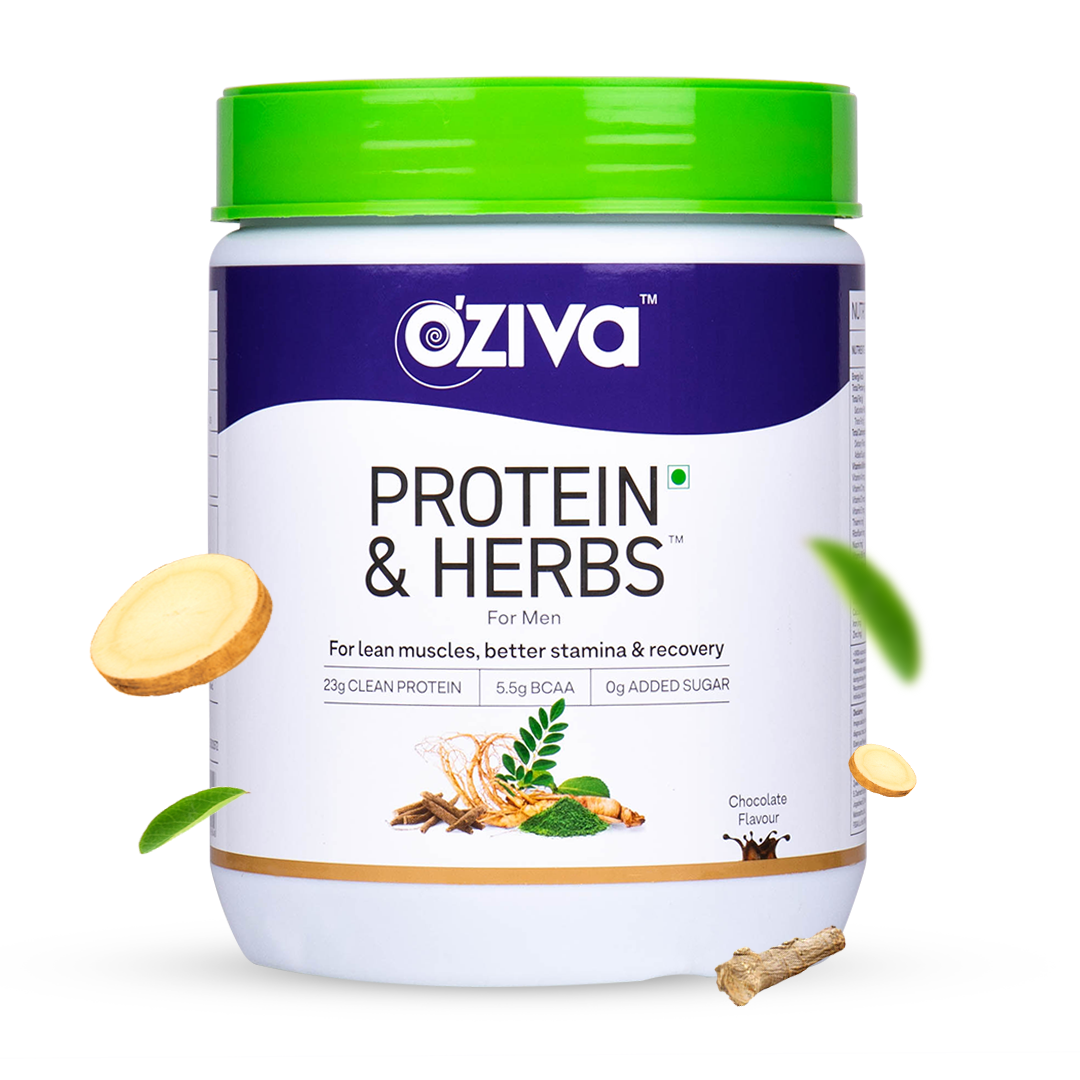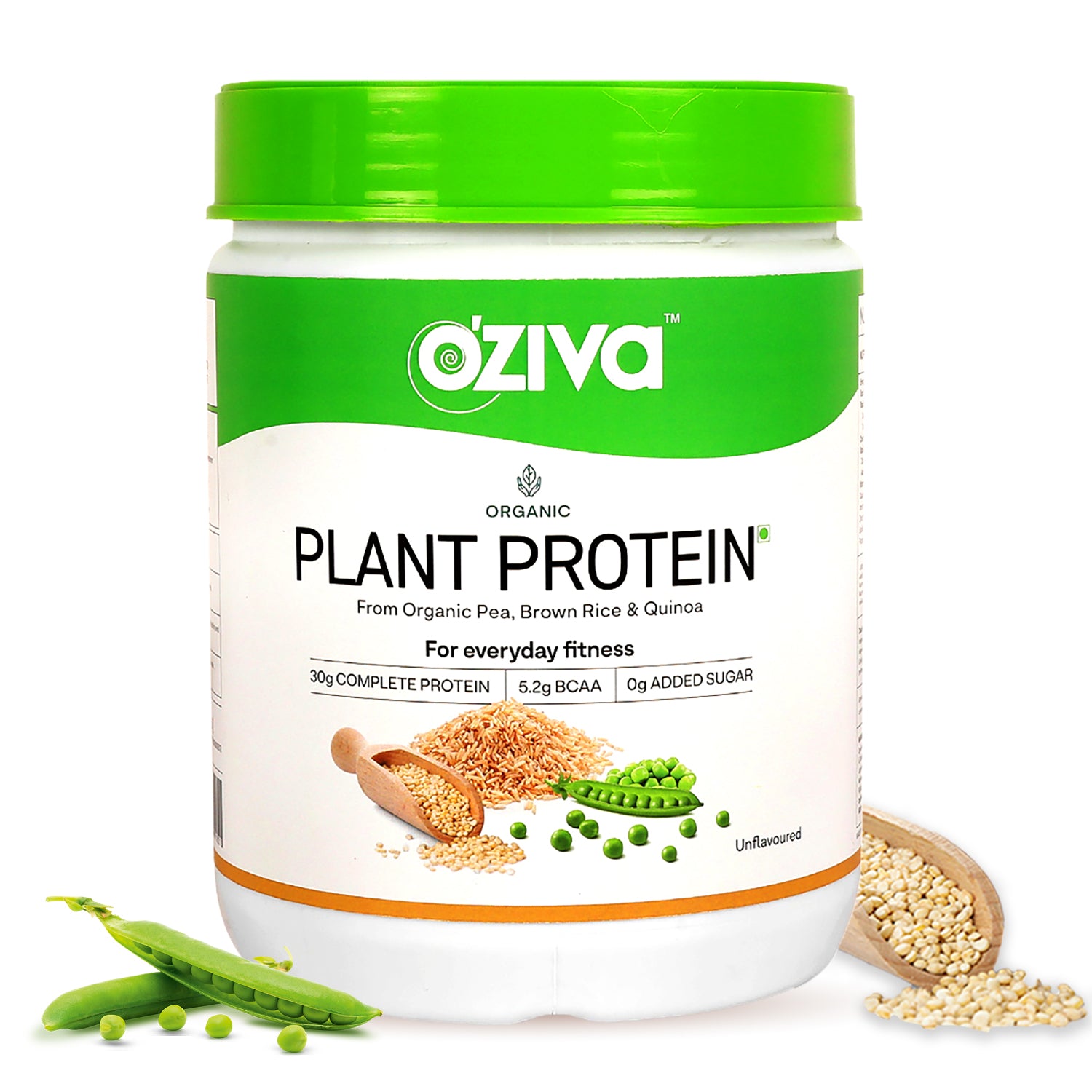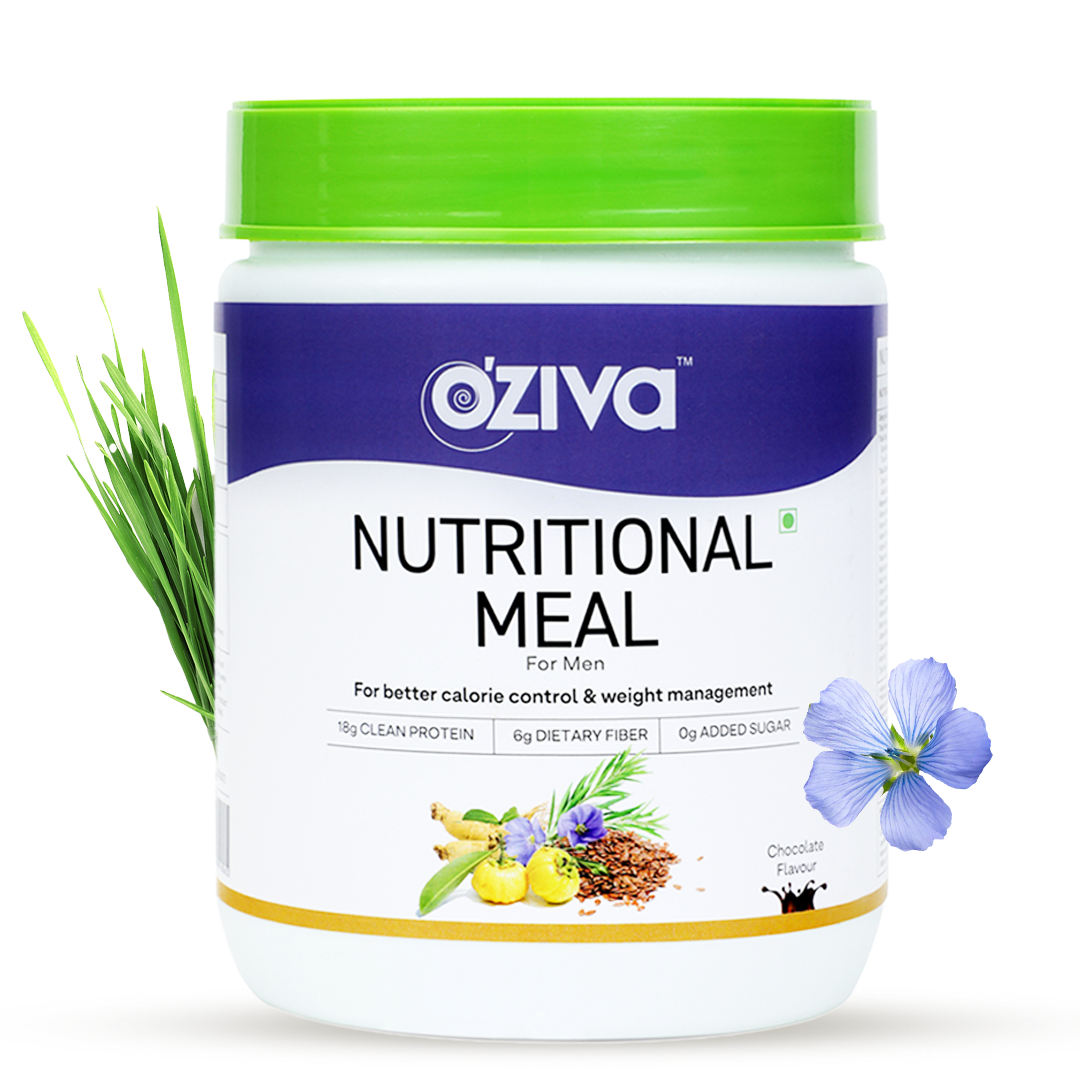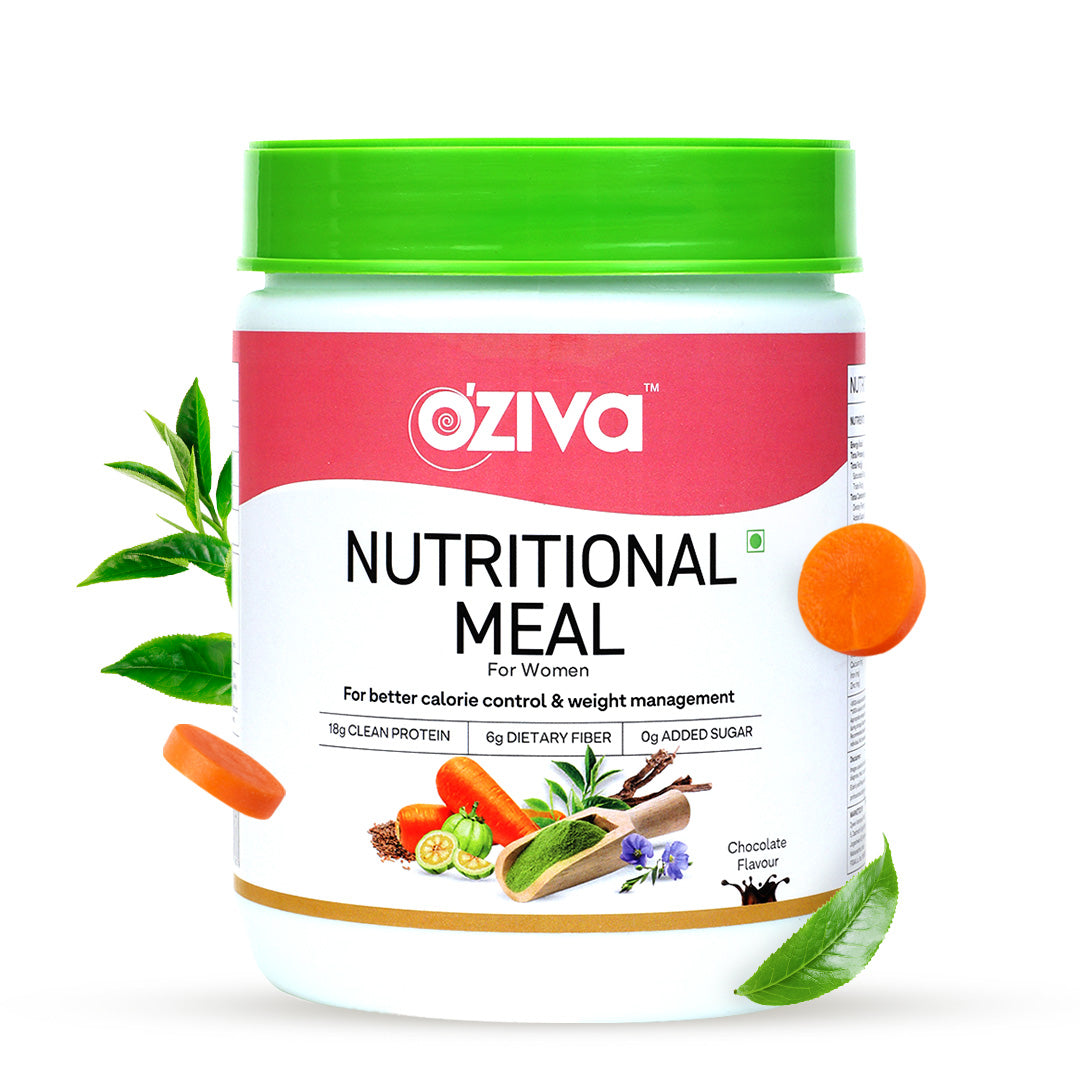Clean and Plant Based
Enriched with Ayurveda
Personalized Guidance
Protein for Lean Muscles - How Does it Work?
Protein is an essential macronutrient that plays a critical role in building and maintaining lean muscle mass. It also can lead up to lean mass gain. When it comes to muscle growth, protein serves as the building blocks for new muscle tissue, aids in muscle repair and recovery, and provides the necessary energy for muscle contraction during exercise. In this article, we will explore the mechanisms by which protein helps build lean muscle and discuss its importance in optimizing muscle growth and leading to lean mass gain. We will also chart out a diet plan for muscle gain that will help you get what you want in terms of your body.
Muscle Protein Synthesis (MPS):
Muscle protein synthesis refers to the process by which new muscle proteins are formed within muscle cells. It is a crucial mechanism for lean muscle growth and repair. Protein intake stimulates MPS, leading to a positive net muscle protein balance. This balance is essential for muscle hypertrophy, which is the increase in muscle fibre size. By providing the necessary amino acids, protein consumption enhances MPS and promotes muscle growth. A diet plan for muscle gain is themed around inducing muscle protein synthesis regularly within the body.
Essential Amino Acids:
For lean muscles, protein consists of various amino acids, including essential amino acids (EAAs) that the body cannot produce on its own and must be obtained through the diet. EAAs are particularly important for muscle growth because they serve as precursors for muscle protein synthesis. Leucine, in particular, has shown to be a potent stimulator of MPS. It activates the molecular pathways that initiate muscle protein synthesis, making it a key amino acid for muscle growth. Ensuring an adequate intake of high-quality protein sources that contain all the essential amino acids, is crucial for supporting lean muscle development.
Muscle Repair and Recovery:
Intense exercise, especially resistance training, leads to muscle damage in the lean muscles. This damage triggers a repair process in the body where new muscle proteins are synthesized to rebuild and strengthen the damaged muscle fibers. Protein plays a vital role in this repair and recovery process. It provides the necessary amino acids to rebuild muscle tissue, allowing the muscle fibers to adapt and become stronger. Consuming protein-rich foods or supplements after exercise can optimize muscle repair and expedite recovery, enabling you to train at a higher intensity and frequency.
Hormonal Regulation:
Protein intake also influences the hormonal environment in the body, which plays a significant role in muscle growth. One key hormone involved in muscle protein synthesis is insulin. Insulin helps transport amino acids into muscle cells, facilitating muscle protein synthesis. Consuming protein alongside carbohydrates can lead to an insulin release, promoting muscle protein synthesis and providing the necessary nutrients for muscle recovery. Additionally, testosterone, growth hormone, and insulin-like growth factor-1 (IGF-1) are hormones that contribute to muscle growth. Adequate protein intake has been shown to positively influence the production and release of these anabolic hormones.
Energy for Muscle Contraction:
During exercise, particularly resistance training, muscle fibers contract and require energy to perform work. Protein can serve as an energy source during exercise, especially in situations where carbohydrate stores are depleted, such as during prolonged endurance exercise or low-carbohydrate diets. Although carbohydrates and fats are the primary sources of energy, under certain conditions, protein can be converted into glucose through a process called gluconeogenesis. This glucose can then be used as fuel for muscle contraction, helping to spare muscle glycogen and maintain muscle performance during exercise.
Satiety and Body Composition:
Protein is highly satiating, meaning it helps you feel fuller for longer. This can be beneficial for weight management and optimizing body composition. By including an adequate amount of protein in your diet, you may experience reduced hunger and cravings, leading to a lower overall calorie intake. When combined with resistance training, protein can support fat loss while preserving lean muscle mass. This is crucial because losing weight without preserving muscle can lead to a decrease in metabolic rate and a less desirable body composition.
Several foods contribute to lean mass gain by providing the necessary nutrients for muscle growth and repair. Here are some examples of foods that can support lean mass gain:
Legumes and Beans: Legumes like lentils, chickpeas, and black beans are not only high in protein but also provide a good amount of dietary fiber. They can be incorporated into salads, stews, and side dishes to increase protein intake and improve lean mass gains!
Nuts and Seeds: Nuts and seeds, such as almonds, walnuts, chia seeds, and flaxseeds, are rich in healthy fats, protein, and fiber. They can be consumed as snacks or added to meals to boost overall calorie and nutrient intake. These nuts and seeds are great for building lean muscle and increasing lean muscle gains.
Seitan: Seitan, also known as wheat gluten, is a high-protein meat substitute made from wheat. It has a chewy texture and can be flavored and cooked in various ways, making it a versatile option for vegans who want lean muscle building.
Legume-Based Foods: In addition to the mentioned beans and lentils, other legume-based foods like chickpea flour (besan), hummus, and falafel can be incorporated into meals to boost protein intake.
Nut and Seed Butters: Nut and seed butters, such as almond butter, peanut butter, and tahini (made from sesame seeds), are nutrient-dense and provide protein, healthy fats, and micronutrients. They can be spread on toast, added to smoothies, or used as a dip for fruits and vegetables.
Quinoa and Whole Grains: Quinoa is one of the best proteins for lean muscles that you could hope to find in the market. It is a complete protein source, containing all the essential amino acids. Whole grains like brown rice, oats, and whole wheat bread are also good sources of carbohydrates and fiber, providing sustained energy for workouts and muscle recovery. Include all of them in your diet plan for muscle gain to build lean muscle!
Vegetables and Fruits: Although not high in protein for lean muscle on their own, vegetables and fruits are important for overall health and provide essential vitamins, minerals, and antioxidants. They support proper digestion, immune function, and overall well-being, which are essential for optimizing muscle growth and recovery. Include them in your diet plan for muscle gain as a support mechanism!
Remember, achieving lean mass gain is not solely dependent on individual foods but rather on consuming a balanced diet that meets your specific calorie and macronutrient needs. Consulting with a registered dietitian can help you develop a personalized meal plan tailored to your goals and preferences.
In conclusion, protein plays a vital role in building and maintaining lean muscle mass. Through its contribution to muscle protein synthesis, muscle repair and recovery, hormonal regulation, and energy provision, protein serves as the foundation for muscle growth.
To optimise lean muscle development, it is important to consume an adequate amount of high-quality protein sources, ensuring a balanced intake of essential amino acids. Combining protein intake with regular resistance training and an overall healthy lifestyle can help you achieve your lean muscle-building goals and to get those lean mass gains. However, it's important to note that individual protein requirements may vary depending on factors such as activity level, body composition goals, and overall health. Consulting with OZiva’s team of expert nutritionists can help you design a diet plan for muscle gain for several months. Reach out as soon as possible to identify which the best protein sources are for building lean muscles, achieving lean muscle gains and more!
Here are some of OZiva’s products that you can also take for building lean muscle and to get lean muscle gains:
- OZiva Protein & Herbs for Men - OZiva Protein & Herbs for Men contains 23g Certified Clean whey protein isolate and whey protein concentrate with Ayurvedic Herbs and vitamins. It helps in muscle building, lean muscle growth, and in improving muscle recovery post workouts. It also has additional benefits like boosting stamina and improving digestion. Take 1-2 scoops of this protein for lean muscles along with your workout in water. Also consume a balanced diet and try out around 30 minutes of workout in a day (even a quick walk will do, but keep it in mind).
- OZiva Nutritional Meal for Men - You can use this protein powder for men as a meal replacement shake for any one meal. It is one of the best proteins for building lean muscle, containing 18g protein for calorie control. This protein for lean muscle also contains around 6.4g of dietary fiber, thus saving up to 500 calories vs. a regular meal. Thus better calorie control is achieved which helps in weight management. If you are able to manage weight, it is the next step towards building lean muscle (along with strength or resistance training).
- OZiva Superfood Plant Protein - If you are vegetarian or vegan, you can try one of OZiva’s plant protein powders for lean muscles. Superfood Plant Protein contains 20g of plant protein sourced from brown rice and quinoa. It is the perfect protein for building lean muscle, enhancing immunity and increasing overall energy levels.
- Choosing a selection results in a full page refresh.
- Press the space key then arrow keys to make a selection.






